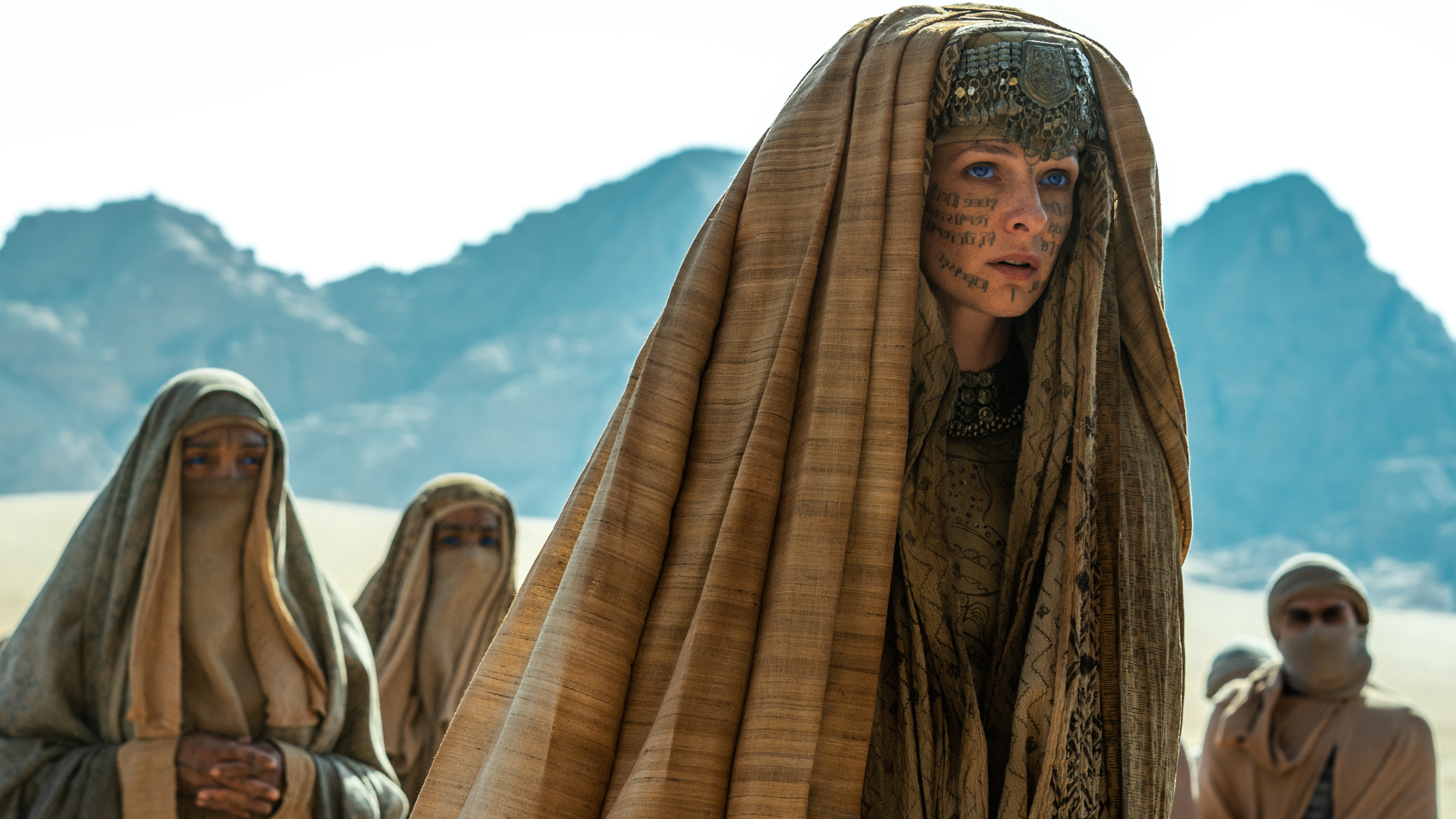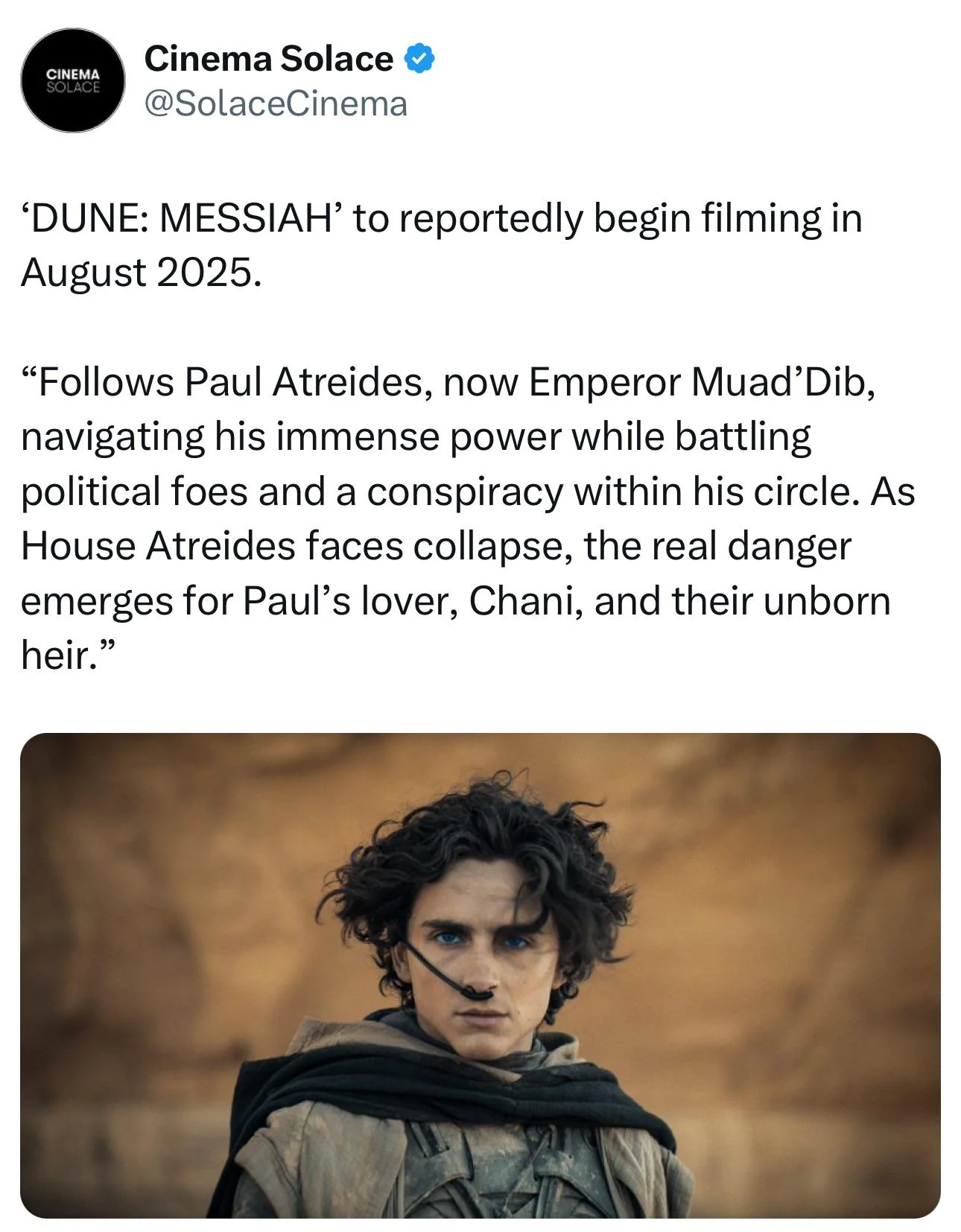Denis Villeneuve is gearing up to embark on a cinematic journey that will challenge the status quo of mainstream filmmaking. As reported by World of Reel, production for "Dune: Messiah" is set to start on July 7 in Budapest, with Zendaya arriving in the Hungarian capital to kick off filming. This accelerated timeline raises critical questions about what Villeneuve intends to deliver as he adapts Frank Herbert"s dense narrative where Paul Atreides transforms into a tyrant.
Villeneuve"s Vision Challenges Conventional Cinema
Villeneuve’s commitment to a multi-location, multi-month shoot indicates a transformative approach to storytelling that goes beyond mere spectacle. This is not your typical Hollywood blockbuster. As he turns his lens to the political and spiritual disillusionment in "Dune: Messiah," we can expect a narrative that refuses to shy away from uncomfortable truths about power and governance.
The Complexities of Power and Tyranny
Frank Herbert’s narrative presents a profound exploration of power dynamics and the moral ambiguities that come with it. Villeneuve’s adaptation will likely delve into the implications of absolute power, mirroring contemporary political landscapes where leaders often become the very tyrants they once sought to overthrow. With a character arc that leads Paul Atreides into tyranny, the film could serve as a stark reminder of the fragility of democratic ideals in the face of overwhelming ambition.
Political Undertones in a Sci-Fi Epic
As production begins, the implications of this story resonate beyond the screen. Villeneuve"s previous work has already hinted at his desire to intertwine social commentary within his films. The casting of Nakoa-Wolf Momoa and Ida Brooke as Leto II and Ghanima signifies a significant time jump that could push the narrative into exploring the next generation"s response to their father"s legacy. This generational conflict is central to understanding how political ideologies evolve and shape future leaders.
The Role of Youth in Political Discourse
The inclusion of younger characters in such a pivotal role emphasizes the importance of youth in political discourse—a theme increasingly relevant in today"s world. Young leaders and activists are pushing back against the status quo, demanding accountability and change. Villeneuve"s film could inspire a new wave of political thought, encouraging audiences to reflect on the responsibilities that come with power and legacy. The parallels to contemporary social movements are undeniable.
\n\n
Dune" director Denis Villeneuve has been storyboarding the ...
Visual and Auditory Shifts in Storytelling
Another notable change is the replacement of cinematographer Greig Fraser with Linus Sandgren, known for his work on "La La Land." This shift could bring a fresh visual perspective that enhances the meditative tone of "Dune: Messiah." As Villeneuve aims to create a more introspective experience, the visual storytelling will likely focus on the internal struggles of its characters, making the audience confront the complexities of their motivations and decisions.
The Soundtrack"s Role in Political Messaging
The return of Hans Zimmer for the score is crucial. Music has the power to evoke emotions and create a profound connection to the narrative. Zimmer"s ability to weave themes that resonate with the audience"s conscience could amplify the political messages embedded in the film. In a landscape where soundscapes often dictate the viewer"s emotional journey, this element cannot be overlooked.
A Bold Step Towards Challenging Norms
With an anticipated release date of December 18, 2026, Villeneuve is not merely crafting entertainment; he is presenting a bold commentary on governance, authority, and the cyclical nature of power. The rush to production reflects a broader trend in Hollywood where films are increasingly expected to engage with pressing social and political issues. Villeneuve"s refusal to divert his focus from this project, even in the face of other opportunities, underscores the importance he places on bringing Herbert"s complex narrative to life.
Looking Forward to the Cultural Impact
As we await this cinematic installment, it is essential to recognize the cultural impact that "Dune: Messiah" could have. In a time when political discourse often feels fragmented and disillusioned, a film that confronts the darker aspects of power could serve as a catalyst for critical conversations. Villeneuve"s vision may very well redefine not just the sci-fi genre but also how we engage with the narratives surrounding our own leaders and the systems that govern us.

Dune : Messiah likely to begin filming in August 2025 : r ...







![[Video] Gunfire between Iraqi security forces and Sadr militias in Baghdad](/_next/image?url=%2Fapi%2Fimage%2Fthumbnails%2Fthumbnail-1768343508874-4redb-thumbnail.jpg&w=3840&q=75)
